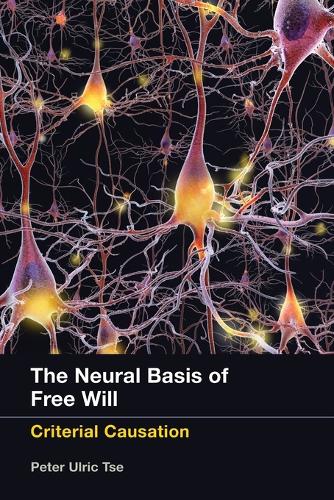
The Neural Basis of Free Will: Criterial Causation
(Paperback)
Publishing Details
The Neural Basis of Free Will: Criterial Causation
By (Author) Peter Ulric Tse
MIT Press Ltd
MIT Press
21st August 2015
United States
Classifications
Tertiary Education
Non Fiction
Philosophy of mind
612.8
Winner of
Physical Properties
Paperback
472
Width 152mm, Height 229mm, Spine 21mm
Description
A neuroscientific perspective on the mind-body problem that focuses on how the brain actually accomplishes mental causation. The issues of mental causation, consciousness, and free will have vexed philosophers since Plato. In this book, Peter Tse examines these unresolved issues from a neuroscientific perspective. In contrast with philosophers who use logic rather than data to argue whether mental causation or consciousness can exist given unproven first assumptions, Tse proposes that we instead listen to what neurons have to say. Tse draws on exciting recent neuroscientific data concerning how informational causation is realized in physical causation at the level of NMDA receptors, synapses, dendrites, neurons, and neuronal circuits. He argues that a particular kind of strong free will and "downward" mental causation are realized in rapid synaptic plasticity. Such informational causation cannot change the physical basis of information realized in the present, but it can change the physical basis of information that may be realized in the immediate future. This gets around the standard argument against free will centered on the impossibility of self-causation. Tse explores the ways that mental causation and qualia might be realized in this kind of neuronal and associated information-processing architecture, and considers the psychological and philosophical implications of having such an architecture realized in our brains.
Reviews
... a groundbreaking new paradigm about how the mind works.
New York Journal of BooksI love Tse's book. It has literally set me free. It explains these ideas in full glory, in exquisite detail...
Stephen Macknik, Scientific AmericanAuthor Bio
Peter Ulric Tse is Professor of Cognitive Neuroscience in the Department of Psychological and Brain Sciences at Dartmouth College. He was awarded a Guggenheim Fellowship in 2014.
